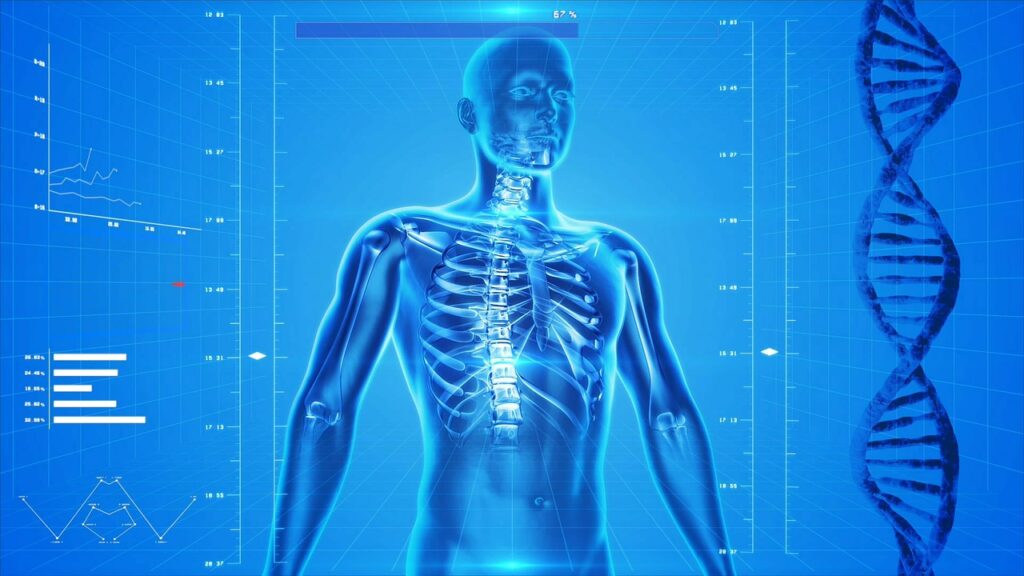Efficient bone marrow irradiation and low uptake by non-haematological organs with an yttrium-90-anti-CD66 antibody prior to haematopoietic stem cell transplantation
Orchard K, Langford J, Guy M, Lewis G, Michopoulou S, Cooper M, Zvavamwe C, Richardson D and Lewington V
We report the results of a Phase I radiation dose escalation study using an yttrium-90 (Y) labelled anti-CD66 monoclonal antibody given with standard conditioning regimen for patients receiving haematopoietic stem cell transplants for myeloid leukaemia or myeloma. The Y-labelled anti-CD66 was infused prior to standard conditioning. In total, 30 patients entered the trial and 29 received Y-labelled mAb, at infused radiation activity levels of 5, 10, 25, or 37.5 megaBequerel (MBq)/kg lean body weight. A prerequisite for receiving the Y-labelled mAb was favourable dosimetry determined by single-photon emission computerised tomography (SPECT) dosimetry following administration of indium-111 (In) anti-CD66. Estimated absorbed radiation doses delivered to the red marrow demonstrated a linear relationship with the infused activity of Y-labelled mAb. At the highest activity level of 37.5 MBq/kg, mean estimated radiation doses for red marrow, liver, spleen, kidneys and lungs were 24.6 ± 5.6 Gy, 5.8 ± 2.7 Gy, 19.1 ± 8.0 Gy, 2.1 ± 1.1 and 2.2 ± 0.9, respectively. All patients engrafted, treatment-related mortality 1-year post-transplant was zero. Toxicities were no greater than those anticipated for similar conditioning regimens without targeted radiation. The ability to substantially intensify conditioning prior to haematopoietic stem cell transplantation without increasing toxicity warrants further testing to determine efficacy. clinicaltrials.gov identifier: NCT01521611.
Artificial intelligence for diagnostic and prognostic neuroimaging in dementia: A systematic review
Borchert RJ, Azevedo T, Badhwar A, Bernal J, Betts M, Bruffaerts R, Burkhart MC, Dewachter I, Gellersen HM, Low A, Lourida I, Machado L, Madan CR, Malpetti M, Mejia J, Michopoulou S, Muñoz-Neira C, Pepys J, Peres M, Phillips V, Ramanan S, Tamburin S, Tantiangco HM, Thakur L, Tomassini A, Vipin A, Tang E, Newby D, , Ranson JM, Llewellyn DJ, Veldsman M and Rittman T
Artificial intelligence (AI) and neuroimaging offer new opportunities for diagnosis and prognosis of dementia.
Brain PET and SPECT imaging and quantification: a survey of the current status in the UK
Michopoulou SK, Dickson JC, Gardner GG, Gee TR, Fenwick AJ, Melhuish T, Monaghan CA, O'Brien N, Prosser AMJ, Scott CJ, Staff RT and Taylor J
With disease-modifying therapies in development for neurological disorders, quantitative brain imaging techniques become increasingly relevant for objective early diagnosis and assessment of response to treatment. The aim of this study was to evaluate the use of Brain SPECT and PET scans in the UK and explore drivers and barriers to using quantitative analysis through an online survey.
Perfusion Imaging and Inflammation Biomarkers Provide Complementary Information in Alzheimer's Disease
Michopoulou S, Prosser A, Dickson J, Guy M, Teeling JL and Kipps C
Single photon emission tomography (SPECT) can detect early changes in brain perfusion to support the diagnosis of dementia. Inflammation is a driver for dementia progression and measures of inflammation may further support dementia diagnosis.
ADCOMS sensitivity versus baseline diagnosis and progression phenotypes
Evenden D, Prosser A, Michopoulou S, Kipps C and
The Alzheimer's Disease COMposite Score (ADCOMS) is more sensitive in clinical trials than conventional measures when assessing pre-dementia. This study compares ADCOMS trajectories using clustered progression characteristics to better understand different patterns of decline.











